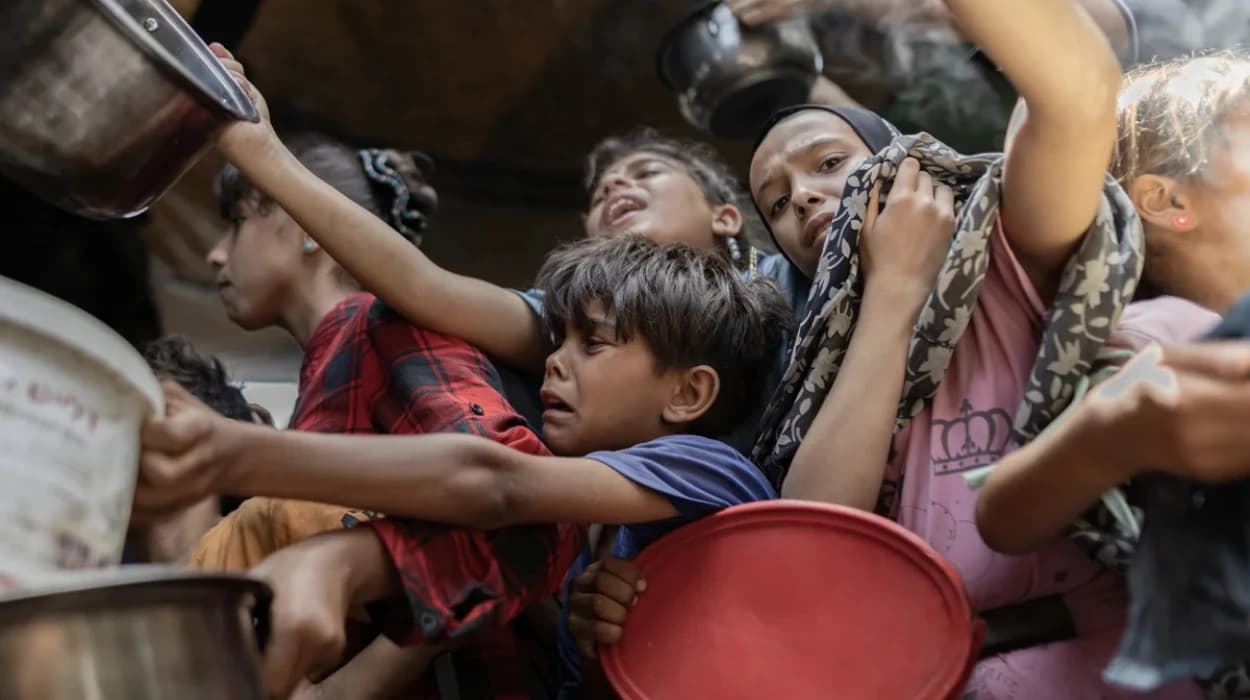The United Nations has condemned the international community
for its failure to act as Israel's blockade continues to starve Gaza, accusing
states of allowing a humanitarian crisis to worsen. UN officials labelled the
situation as "unforgivable," highlighting the severe impact of
restrictions on food, medicine, and essential supplies to the densely populated
enclave.
What is the current humanitarian situation in Gaza according to the UN?
As reported by multiple UN officials, the situation in Gaza
is critical and deteriorating due to the ongoing blockade imposed by Israel.
The United Nations describes the blockade as causing starvation, depriving
Gazans of food, medical supplies, and other essential humanitarian aid. This
deprivation is aggravating an already dire humanitarian crisis in the region.
The UN has declared that the world's passive stance towards this blockade and
resulting suffering is "unforgivable," emphasising the urgent need for
international intervention to prevent further loss of life and suffering.
The combination of restricted access and inadequate
humanitarian response has led to widespread food insecurity and medical
emergencies in Gaza, endangering vulnerable populations including children and
the elderly. UN humanitarian representatives have repeatedly called on Israel
and the international community to lift or ease restrictions to allow the free
flow of aid and goods into the territory.
Why does the UN say the world is ‘standing by’ as Gaza starves?
According to the United Nations, the international
community's failure to take effective action to stop or alleviate the blockade
amounts to standing by and allowing the crisis to deepen. Reports by
journalists on behalf of the UN quote senior officials expressing frustration
at the lack of decisive political leadership and coordinated humanitarian
efforts to address the worsening conditions in Gaza.
UN officials assert that despite clear evidence of severe
deprivation and warnings of escalating human suffering, global powers and
international bodies have not mobilised adequate pressure on Israel to end or
mitigate its blockade measures. The inability or unwillingness of world
governments to act decisively is viewed as tacit complicity in the ongoing
starvation and deprivation faced by civilians in Gaza, hence the strong
language describing the situation as "unforgivable".
How has Israel’s blockade contributed to this crisis?
Israel's blockade of Gaza, which includes tight restrictions
on the movement of goods, people, and services into and out of the territory,
has been a central factor in the humanitarian crisis highlighted by the UN.
This blockade limits the import of food, medicines, fuel, and construction
materials, necessary for basic life and infrastructure maintenance.
Journalistic coverage and UN statements detail how these
restrictions have effectively isolated Gaza, preventing the local population
from accessing adequate healthcare, food, clean water, and electricity. The
blockade's impact has been compounded by the area's dense population and damage
to infrastructure from past conflicts. Experts and UN representatives argue
that this collective punishment of Gaza's civilian population violates
international humanitarian laws and norms, leading to immense human suffering.
What reactions have come from the international community?
Media coverage indicates a divided international response.
Some countries and humanitarian groups have voiced strong criticism of Israel’s
actions and urged for the lifting of blockades to allow humanitarian aid. In
contrast, other governments have been more cautious or supportive of Israel’s
security concerns, advocating for measured responses that balance humanitarian
needs with regional security challenges.
While many humanitarian organisations are working to provide
relief within Gaza, they face logistical and political obstacles exacerbated by
the blockade and restricted access. The UN continues to appeal for diplomatic
efforts and increased aid delivery to meet the basic needs of Gaza’s
population.
What are the legal and ethical implications highlighted by the UN and other experts?
The UN has underlined that the blockade and resulting
deprivation could constitute violations of international law, including
international humanitarian and human rights law. The description of the
situation as "starvation as a method of warfare" points to severe
ethical concerns about the conduct of hostilities and treatment of civilians.
Legal experts quoted indirectly in journalistic sources
caution that imposing collective punishment on civilian populations through
blockades contravenes established treaties and conventions aimed at protecting
non-combatants during conflicts. The UN’s stern criticism signals a demand for
accountability and adherence to international norms by all involved parties.
What is being done to alleviate the crisis?
Efforts to provide humanitarian aid continue amid
challenging conditions. UN agencies and partner organisations are attempting to
send food, medical supplies, and fuel into Gaza, but their efforts are hampered
by the ongoing blockade and security situation on the ground.
Diplomatic initiatives are underway, aiming to negotiate
temporary easing of restrictions to allow aid delivery and provide some respite
to civilians. However, progress is slow, and the UN warns that without a
fundamental change in access policies, the humanitarian situation will continue
to deteriorate.
What does this situation mean for the people of Gaza?
The people of Gaza face a desperate crisis of survival.
Reports paint a grim picture of widespread hunger, health emergencies, and lack
of basic services, directly attributable to the blockade and limited
international action. Women, children, the elderly, and the sick are especially
vulnerable to the dire conditions.
The UN’s condemnation emphasises the moral imperative for
the global community to not remain passive. It urges concerted action to
prevent further humanitarian disaster and to uphold the rights and dignity of
Gaza’s civilian population.
